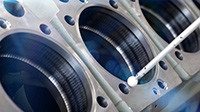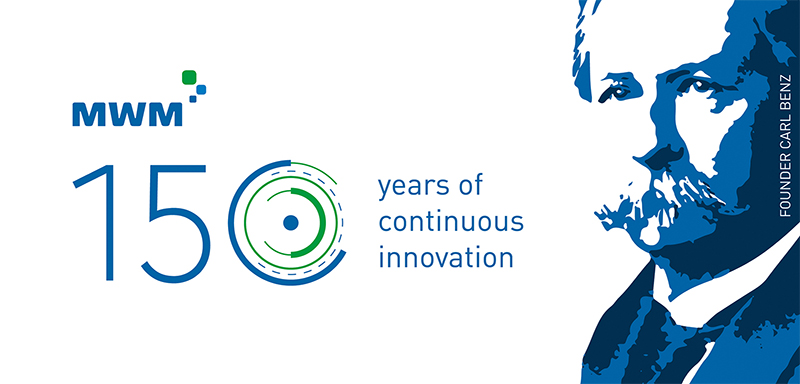MWM on the Energy Reform in Germany: Cogeneration and Flexibilization as Future Concept for Companies
Mannheim, April 05, 2019
Following the exit from nuclear power, Germany needs to reduce and discontinue the generation of power from coal in order to reach the objectives of the energy reform. The “Growth, Structural Change, and Employment” Commission regards flexible, gas-fired combined heat and power (CHP) plants and heat network systems as future-oriented energy concepts.
The Commission’s report suggests that due to the incentives of the German Combined Heat and Power Act (KWKG), further lignite and coal-fired power plants will be shut down after 2020. Since 2016, the subsidization of new or retrofitted lignite and coal-fired CHP plants is no longer possible. On the other hand, the replacement of coal-fired power plants with gas-fired CHP plants is still eligible for subsidization. Currently, the subsidization of combined heat and power plants is limited until 2025.
Therefore, the transition from coal-fired to gas-fired power plants is now especially attractive for companies. The use of “green gases” such as biogas, sewage gas, or some special gases, in particular, offers many ecological and economic benefits.
Mastering the Challenges of the Energy and Structural Change in Germany with the Help of MWM
MWM offers highly efficient, smart, and eco-friendly power plant solutions that can be adapted to the changing needs of commercial and industrial sites in a flexible way. MWM gas engines and power gensets are suitable for a wide spectrum of gas types, such as natural gas, biogas, sewage gas, landfill gas, and gases containing hydrogen, e.g. from the gasification of biomass.
In its state-of-the-art wood pellet plant in the Bavarian town of Wunsiedel, WUN Pellets GmbH has deployed three highly efficient MWM gas engines of the TCG 2032 series as control energy power plant in order to stabilize the power grid with the help of renewable energy sources. Apart from a total electrical output of 13.5 MW, the thermal energy from the engine’s exhaust heat is used to dry the wood pellets. In this way, the CHP plant’s thermal efficiency reaches approximately 47.4 percent. The total efficiency amounts to up to 92 percent, an excellent value in Germany. The CHP plant is already prepared for the future: The comprehensive package comprises selective catalytic reduction (SCR) in order to meet the upcoming emission requirements (NOx=250 or 100 mg/Nm3).
Further information
Contact Media
Aljoscha Kertesz
Manager Communications
T +49 621 48 18 35 76
E mwm-press@cat.com
Frank Fuhrmann
Online Editor
Member of DPV / German Press Association
T +49 621 48 18 35 16
E mwm-press@cat.com









































